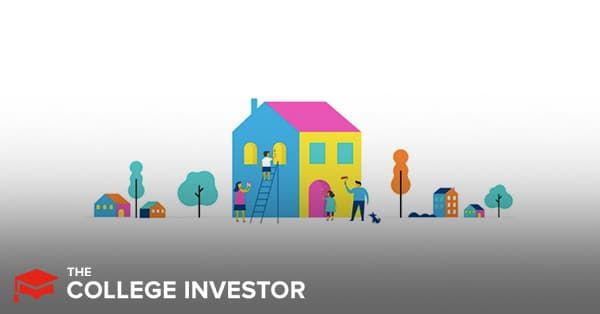
If you're a homeowner with a significant amount of equity in your home, taking out a home equity line of credit (HELOC) may come to mind when you need extra cash.
Homeowners have long looked to HELOCs as fairly reliable ways to tap into the cash value they’d built in their home. But since the beginning of the pandemic, lenders have been less willing to provide HELOCs to homeowners. Some banks have suspended their HELOC programs altogether while others have tightened up their credit requirements.
While many banks hope to make HELOCs more broadly available in the near future, getting one right now could be difficult. However, there are HELOC alternatives out there that could provide access to the cash you're hoping for. Below, we break down each of these options and list a few of the top companies that may be worth checking out.
HELOC Alternatives: A Breakdown
HELOCs may be hard to come by right now. But there are plenty of other ways to tap into the equity you’ve built in your home. Here are a few options to consider:
- Home equity investments: With this option, you receive an upfront investment from a company in exchange for sharing a percentage of your home's future appreciation or depreciation.
- Sale leasebacks: With these loans, you sell your home and the buyer allows you to stay as a renter until you're ready to move or you decide to buy your home back (if allowed). You technically don't have to make loan payments with a sale leaseback, but you will have to pay rent.
- A home equity loan: Unlike a HELOC, a home equity loan is a one-time transaction followed by regular monthly payments.
- Cash out refinancing: A mortgage refinance could allow you to pull equity out of the home and begin making payments on a new mortgage loan.
- Unsecured personal loans: An unsecured personal loan won’t require you to put your home on the line. Instead, you can take out a fixed amount to repay with regular installments.
- Reverse mortgage: This type of loan is often marketed to retirees as a way to access their home equity without having to move. There are no monthly payments with a reverse mortgage. Instead, the balance is repaid when the homeowner sells their home, moves, or passes away.
- Sell the house: If you need the cash and can’t obtain a loan, then selling the house could provide the funds you need. Plus, depending on the market, you might have a big windfall to help you cover rent for a while.
As you can see, there are a wide range of HELOC alternatives out there. Based on your unique financial situation, one of the choices will stand apart as the best.
5 Best HELOC Alternatives
Let’s explore our top 5 choices for HELOC alternatives. Four of these options are home equity investment companies while the fifth is a sale leaseback company.
Unlock

Unlock is a home equity sharing agreement that works as a HELOC alternative. It stands out from some of its competitors, though, by having a low credit score minimum of just 500.
You must have a home equity ratio of at least 20% to take advantage of Unlock. You can access anywhere from $30,000 to $500,000, depending on how much equity you have in your home.
It's important to note that with Unlock you must settle the investment within 10 years. So if you don't think that you'll be able to sell the property or buy out Unlock within that timeframe, you should probably look at a different HELOC alternative.
Hometap

Hometap also provides homeowners with cash investments in exchange for some of their home equity. It stands out from some of its competitors, though, by having a low credit score minimum of just 600.
The investment that Hometap makes must be less than 30% of the value of your home. Plus, there is an investment cap of $600,000 for any particular property.
It's important to note that with Hometap you must settle the investment within 10 years. So if you don't think that you'll be able to sell the property or buy out Hometap within that timeframe, you should probably look at a different HELOC alternative.
Unison

Unison offers homeowners Home Equity Investment as an alternative to HELOCs. The company is willing to make investments in your home that range from $30,000 to $500,000. But the investment must not be worth more than 17.5% of the home’s current value.
If you work with Unison, there is an upfront transaction fee of 3.0%. That can make this an expensive option when compared with a regular HELOC. The upside is that you won’t have to repay Unison until you sell the home, 30 years have passed, or you simply want to buy them out.
Point

Point is another investment company that will buy a portion of your home’s equity with cash. You’ll need to have built up at least 20% in home equity to receive an investment from Point, but the company prefers that you have at least 35% of the equity in your property.
One big benefit of Point it that it will invest in some rental properties that have a maximum of up to 4 units. But it should be noted that the company uses "risk adjustments" to reduce your home's appraised value by 15% to 20% right off the bat, which is a big downside.
Typically, you’ll receive a decision from Point in a matter of minutes. At that point, you can proceed with accepting their cash investment offer. You’ll pay Point back when you sell your home, reach the end of a 30-year agreement, or decide to buy back your equity from Point.
EasyKnock

With EasyKnock's sale leaseback programs, you sell your home to them, receive a percentage of the purchase amount in upfront cash, and the rest when you repurchase it or instruct EasyKnock to sell it on the open market. In the meantime, you continue to live in your home as a renter. So while EasyKnock doesn't technically require monthly payments, you will have to start paying rent.
With Sell & Stay, you can receive up to 85% of your home's current value in cash right now and the remaining 15% when you request EasyKnock to sell your home or you buy it back. If you go the sale route and your home sells for more than what EasyKnock agreed to pay you, you get to keep the difference. The initial lease is 12 months, but you can renew indefinitely.
MoveAbility allows you to access up to 90% of your home's value immediately and you'll once again have the potential to receive appreciation when it sells on the market. But unlike with See & Stay, you won't have the option to repurchase your home. The maximum lease with the MoveAbility program is 12 months. This could a great option if you want to avoid the hassles and costs of moving while you look for a new home.
Like MoveAbility, ReLease also allows you to receive up to 90% of your home value as cash and there's no repurchase option. The advantage of ReLease is that you can rent for as long as you like. The minimum lease is 24 months, but you can renew indefinitely. The downside is that ReLease is the only EasyKnock program that doesn't allow you to receive appreciation on the future sale of your home.
Bonus: Credible Personal Loans

If you need a smaller amount, you can get a personal loan up to $100,000 on the Credible marketplace without using your home at all. You'll generally need a good credit score to get a favorable rate on a personal loan. But if your credit is strong, unsecured personal loans can be a useful HELOC alternative.
With Credible, you can compare your personal loan options from 15+ lenders in minutes. When you take out a personal loan, you will need to make regular monthly payments. But the free platform can help you find a loan term that fits your budget. And the cash won’t be attached to your home’s equity in any way.
Final Thoughts
A HELOC can be a useful way to tap into your home’s equity. But if traditional mortgage lenders aren’t willing to help you access that equity, then you’ll need to seek out a different option.
Before you dive into a HELOC alternative, weigh your other options. Is it possible to cover this expense with a short-term side hustle or a dip into your savings? If so, you might be able to avoid the process of selling your home’s equity or taking out a personal loan.
If access to cash is a priority, then keep the fees in mind as you explore your HELOC alternatives. Don’t overpay for the opportunity to leverage your home’s equity

Robert Farrington is America’s Millennial Money Expert® and America’s Student Loan Debt Expert™, and the founder of The College Investor, a personal finance site dedicated to helping millennials escape student loan debt to start investing and building wealth for the future. You can learn more about him on the About Page or on his personal site RobertFarrington.com.
He regularly writes about investing, student loan debt, and general personal finance topics geared toward anyone wanting to earn more, get out of debt, and start building wealth for the future.
He has been quoted in major publications, including the New York Times, Wall Street Journal, Washington Post, ABC, NBC, Today, and more. He is also a regular contributor to Forbes.
Editor: Clint Proctor Reviewed by: Ashley Barnett
